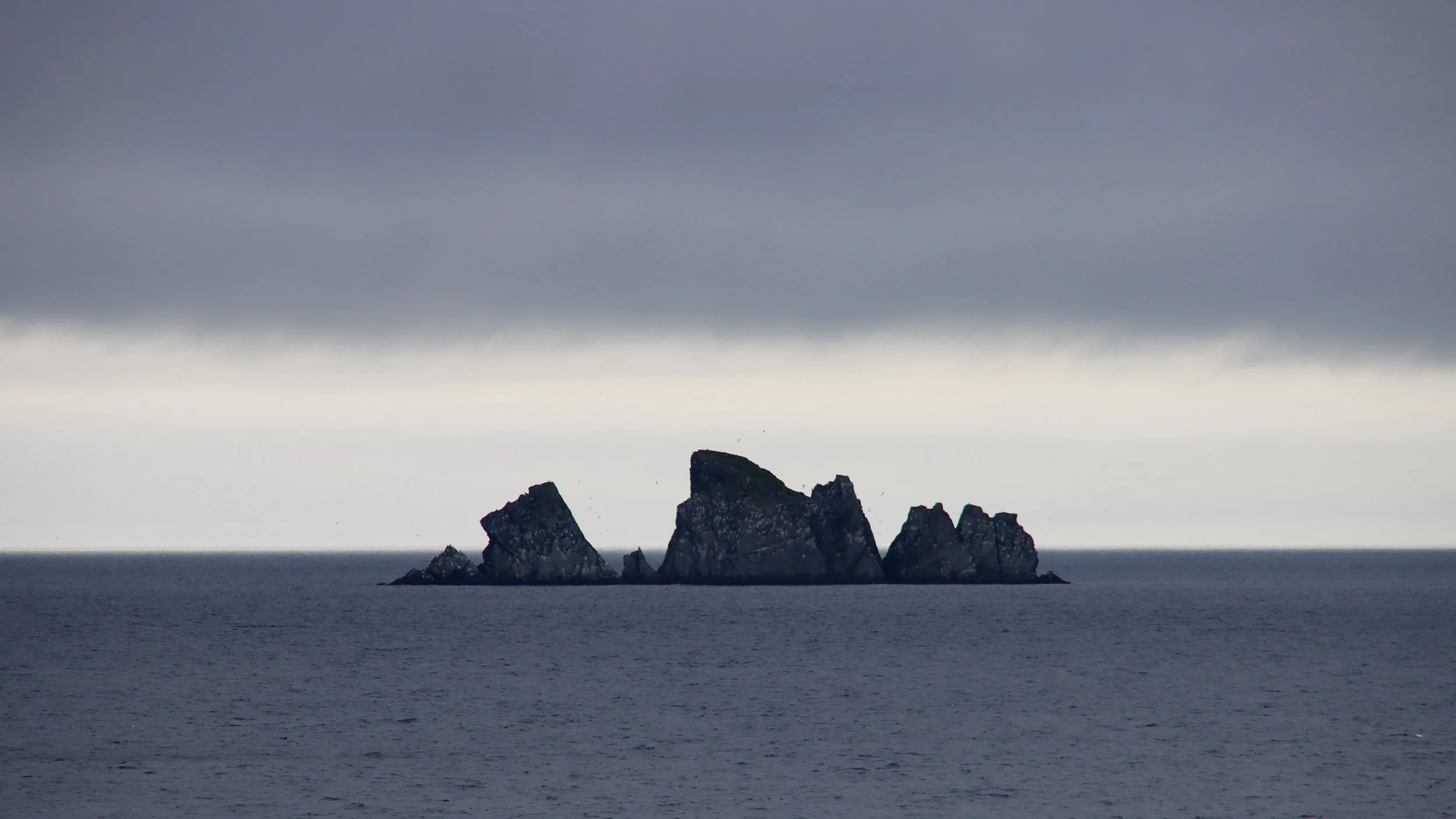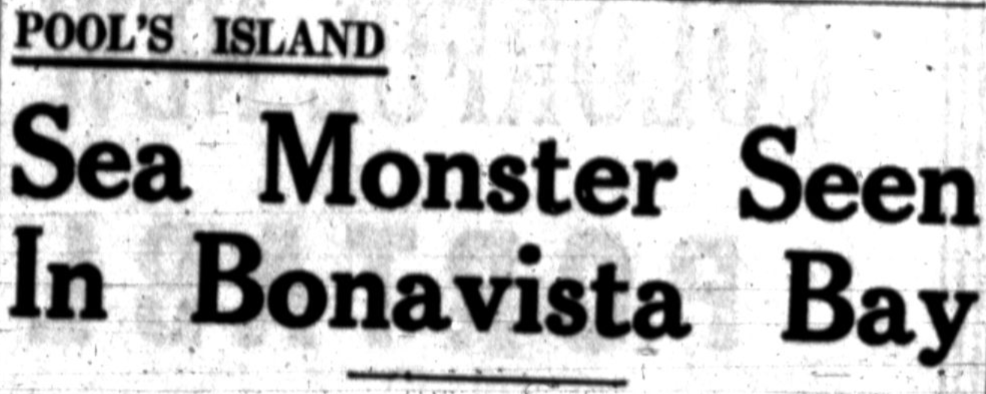Newfoundland’s Summer of Sea Monsters
In the summer of 1953, the sea around Newfoundland was alive with mystery, and full of stories too big to ignore. For a little more than a month, boat loads of men on the Bell Island to Bonavista Bay found their fishing grounds playing host to creatures they had never seen before.
Shag Rock, Trinity Bay, NL
Baccalieu
It began, as best anyone can tell, at the end of July. On August 2, the Sunday Herald (which, admittedly, is hardly the paper of record) reported that two Bay de Verde fishermen—William Baker and Francis Sullivan—had a scare in Baccalieu Tickle. Something big and fast chased their boat—a sea monster, they said! It looked like a giant shark, twenty-five feet long, with a bullet-shaped nose.
Just two days later, and not far away, another report surfaced — this one from the Acadia, a chart ship near Baccalieu Island. Alton F. Dingee, an observer from Gagetown, New Brunswick, spotted something massive trailing behind the vessel. He estimated it was fifty feet long, with a bird-like head five feet across and an eighteen-foot tail. It floated on the surface for a few minutes before vanishing. Dingee described it as dinosaur-like.
Though they were close together the creatures described could hardly have been the same animal.
And the reports kept coming.
Bell Island
On August 13, the Daily News reported that a striped, green sea creature over forty feet long had been spotted off Bell Island near the iron ore pier—“disporting itself” in plain view of land.
Pool’s Island
Headline from The Evening Telegram Aug 22, 1953
On August 22, fishermen in Bonavista Bay, near Cabot Island and Change Rock, claimed they saw something strange leaping from the water. It had a head “something like a seal” and a great splashing tail. One man fired a shot at it before it swam off.
Trinity & Conception Bay
That same weekend, curious seamen aboard the Norma L. Conrad told the Daily News that a whale-like fish with a towering six-foot fin had followed their vessel along the east coast, swimming parallel to the hull near Trinity and Conception Bays. They said it was about forty feet long and uncomfortably close.
The sightings became so frequent that by September the Sunday Herald put out a standing offer: $100 for a photograph of any of the “various sea monsters now being seen around Newfoundland.” They added, dryly: “Persons who see pink elephants need not apply.”
Old Perlican
Then, on September 8, the Evening Telegram revealed that a strange creature had washed ashore near Old Perlican. People flocked to catch a glimpse of, what they thought, might be a real life sea monster. The so-called monster turned was actually a decaying pothead whale—bleached nearly white, torn by fish, and mistaken for something more mysterious.
And just about then, the month of monsters ended. What most people saw remains a mystery, but with newspapers running sensational headlines and offering cash rewards, people were primed to see strange things. And the ocean, with its shifting waves, large animals and mysterious depths has always been good at providing just enough to stir the imagination.
Harbour Breton fog, NL
That said, some point out that Newfoundland’s waters were warmer than usual in the 1950s. Warmer seas may have allowed some unfamiliar species to wander into local bays and harbours, where their odd shapes and behaviours might have caught people off guard.
And so it ended, as many things do on the Newfoundland coast — in the fog, with more questions than answers.
-
Sight Sea Monster, Evening Telegram, August 04, 1953
Another Sea Monster Sighted, Daily News, August 13, 1953
Bay de Verde Fisherman, Sunday Herald, August 2, 1953
Seamen Still Continue to Sight Strange Fish, Observer’s Weekly, August 25, 1953
$100.00 Reward, Sunday Herald, September 6, 1953
Sea Monster Seen in Bonavista Bay, August 22, 1953
Sea Monster is Battered Pothead, Evening Telegram, September 9, 1953
No, Definitely Not! Well…Maybe. Sea Monsters, Evening Telegram, August 13, 1953
Here Be Monsters
On Newfoundland’s foggy coast, not everything strange is imagined—and not everything real can be explained.
The Here Be Monsters series dives into historical sea monster sightings reported in Newfoundland’s headlines — real accounts from people who lived and worked on the water. These stories may not all point to undiscovered creatures, but they remind us that even in well-known harbours and fishing grounds, the sea still has its secrets. And those secrets can surprise, unsettle, and leave even the most seasoned mariners with more questions than answers.



